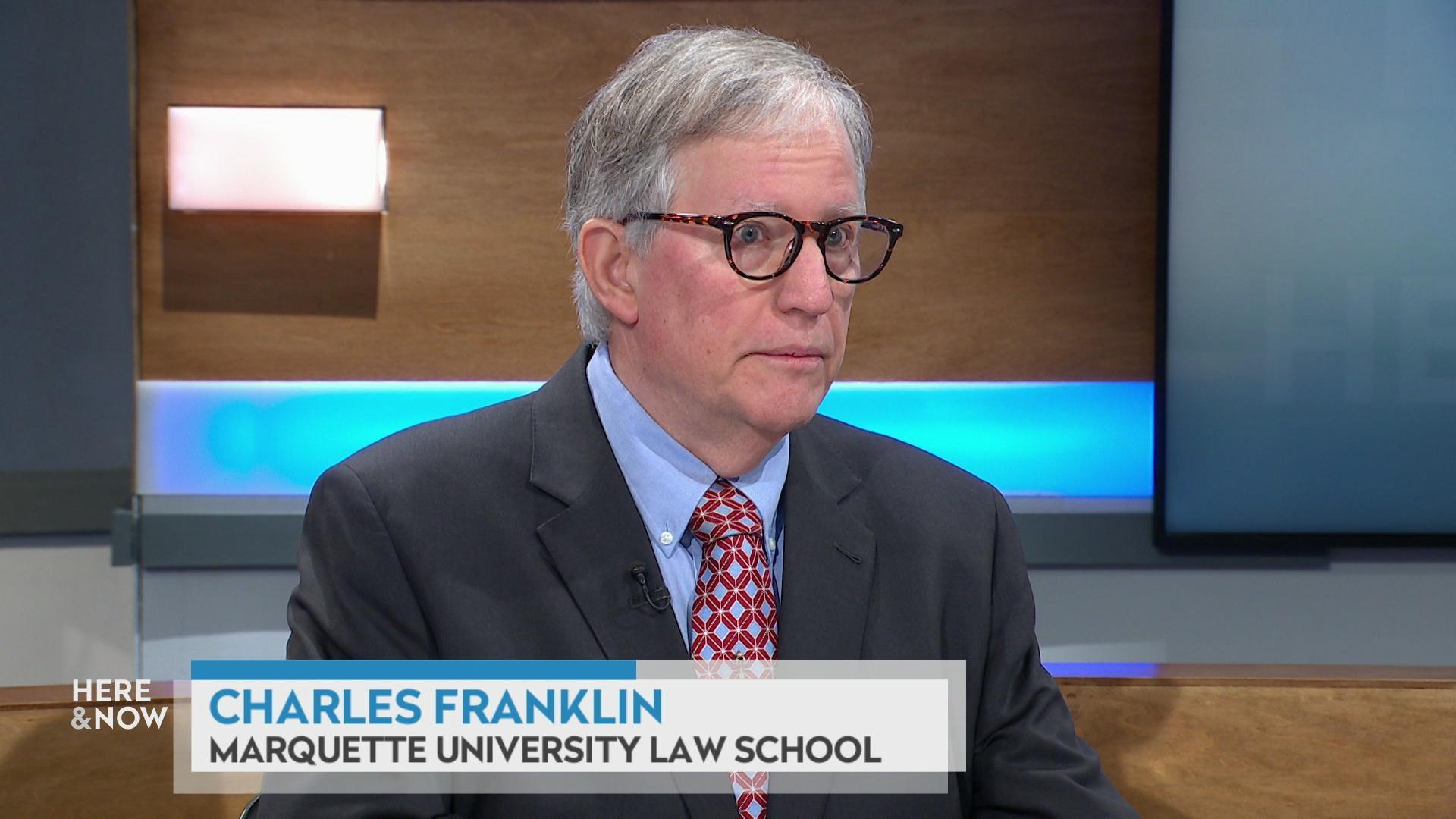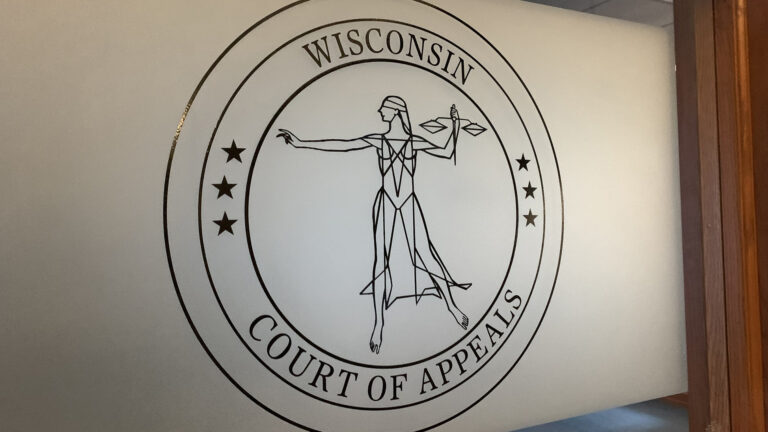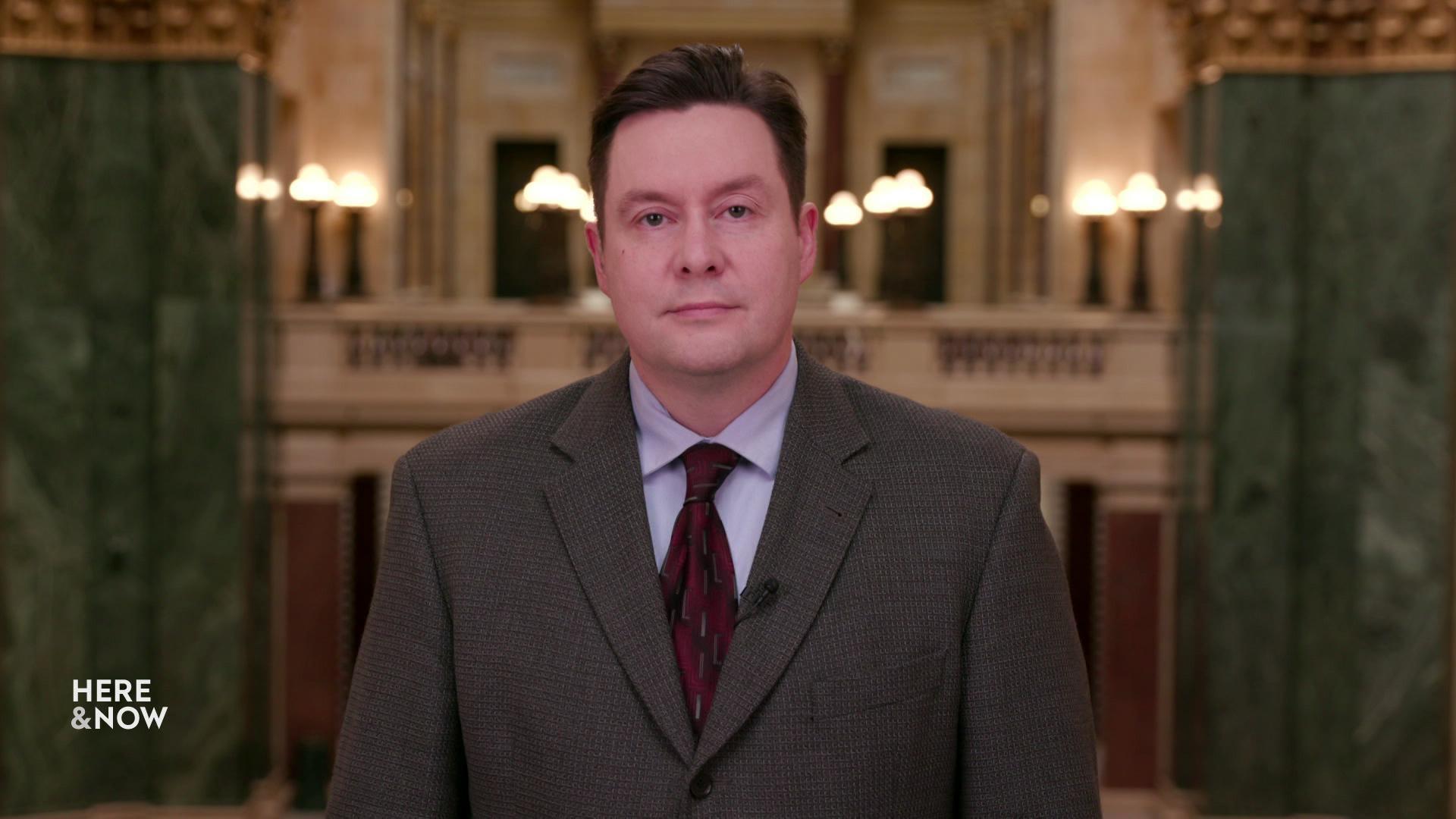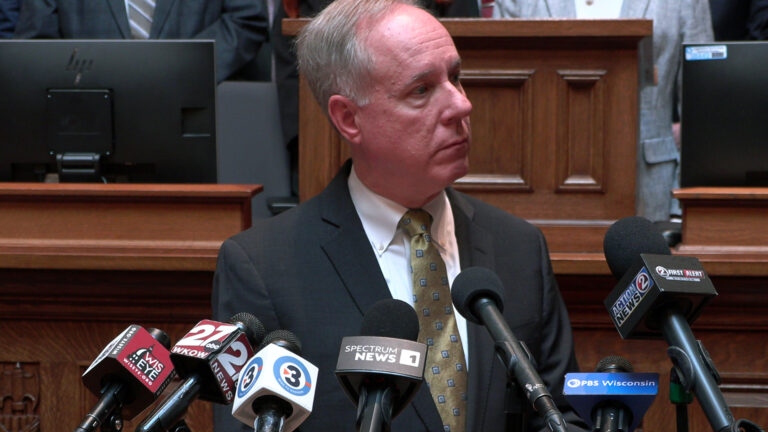Motivating diverse religious voters in Milwaukee and Madison
Churches, temples and other faith-based groups in Milwaukee and Madison are encouraging people to vote and engage with public officials, extending a longstanding historical connection with the ballot.
By Murv Seymour | Here & Now
June 28, 2024 • Southeast Region
Echoes in the fight for the right to vote during the Civil Rights Era have long rung out.
“Then after getting people registered, that is another even greater responsibility, and that is to go out and vote in the primary,” said Rev. Dr. Martin Luther King, Jr. during an historic 1966 speech in South Carolina. “Let us go march on ballot boxes.”
More than a half-century later, the urge to march on continues. It rings from one place some consider the catalyst for community engagement: The church.
“In some areas, you see three churches on one block,” said Rev. Greg Lewis, who pastors at St. Gabriel Church of God in Christ in Milwaukee. “I don’t care where you go, the church is the most powerful entity that we have in our grasp.”
“Oh happy day. Oh happy day,” preached Lewis in a sermon on April 10, 2022. “When I get to heaven, it’s gon’ be a happy day. I don’t want to wait till then. I want a happy day right now. Amen.”
Lewis not only preaches, but he also leads the non-partisan, non-profit organization Souls to the Polls.
“Listen, church: You have work to do. Talk to your friends, neighbors, relatives,” preached Lewis. “Call ’em. Tell ’em. Listen, involve yourself in the process. We have power. We have the numbers. We just need the energy. Let’s give yourselves a great big hand, because everybody in here went out and voted. So, thank you so much. God bless you all.”
Its goal: Get everyone in his community who’s eligible to vote.
“I just want to thank everybody for going out and voting last week,” Lewis said.
“This is something that we can really make home for early voting. Amen,” said Lewis at a Nov. 9, 2023, press conference outside the Midtown Center on the city’s north side.
“We always intentionally went to the early vote location at Midtown,” said Angela Lang, executive director of Black Leaders Organizing for Communities, called BLOC, at the press conference.
When the Midtown early voting site in Milwaukee unexpectedly shut down, Souls to the Polls united with more than a half-dozen community groups and some of the 400 pastors Lewis says he has in his contacts list.
“Let’s work harder to get out and vote early, even more than before,” said Lewis. “We’re going to make sure that we really push early voting.”
The goal: Keep an early voting site in the neighborhood.
“This is important. This is where we have to start,” he said.
In what felt at times like an outdoor sermon, Reverend Greg Lewis preached the importance of early voting at the press conference.
“This is how we get economics. This is how we get housing. This is how we get jobs. We have to put people in place who will help us do the things that need to be done in this community. And voting is numero uno,” Lewis said.
A few miles to the south, in a residential neighborhood, sits a Buddhist temple.
“This is the Milwaukee Zen Center, which has been here in this place for over 30 years,” said Rev. Reirin Gumble, a resident priest at the center, located on the city’s east side. “We might meditate here in the mornings, and we take classes.
On one day, it’s a meeting place to learn about registering people to vote, organized by Gumble and presented by the League of Women Voters of Wisconsin.
“It’s great to register people, but if they can’t vote, it really hasn’t accomplished much,” said a trainer with the group. “Anything the system needs to know, it’s going to ask for,” said the League of Women Voters trainer, who noted one example. “To use the online system, someone has to already be 18-year-old.”
“Today we are going to do a voter registration training,” said Gumble. “Every vote counts. And it is important that we take care of that.”
People at the training anxiously learn how to best prepare themselves as election workers. Guided by faith, this nonpartisan nonprofit spiritual center also sends out thousands of written letters before Election Day encouraging people to vote.
“We ask people to very carefully look at the agenda that certain people have, and then make a vote according to their own values. I think everybody needs to do that for themselves,” Gumble said.
In the heart of the University of Wisconsin-Madison campus, Rev. Michael Burch at The Crossing ministry looks to educate this college community about political activism.
“Faith communities have had a role in advocacy for a long time,” he said. “The vote is one piece of the whole advocacy picture.”
“Listening to the students: That’s my main role,” Burch added.
He does so by bringing together students with and without faith.
“It’s not all about really being on one end of the spectrum or the other, but, learning to be versed in what you’re advocating for and understanding it, and also being willing to move your position,” Burch said.
One night, Rabbi Bonnie Margulis of Wisconsin Faith Voices for Justice schools a small group of students on how to engage with their local politicians and communicate with this voice and their vote.
“What is it that you want them to do? Be really clear in your ask,” she explained. “If you’re on the mailing list for different organizations, I’m sure you’ve gotten asked to sign this petition. Put your signature on this letter.”
“The students really need to understand the power of their voice and that they really have not just the right, but also the responsibility to vote, to learn about issues, to look into things that they care about that are important to them, and to build relationships with their elected officials,” Margulis explained.
UW-Madison student Benjamin Dorava listened from the front row with a purpose.
“Tonight, I hope to learn how to take my first few steps in being more active politically, aside from just voting in elections,” he said.
“Ask the students to come up with the questions that they want to have asked. Have a moderator,” said Margulis to the students.
“Choosing not to vote is a choice, as much as choosing to vote. And if you don’t vote, then the person who did vote gets to choose for you who your elected official is. So if you want your values and your beliefs to be reflected in who gets elected, then you need to exercise your right to vote,” Margulis said.
Without a doubt, in the 2024 election cycle, influence from faith and church groups will likely play a huge role in who wins and loses at the ballot.
“We picked up people from here at the church and took ’em out to vote. We had folks who they went to their homes, and they took ’em to vote,” said Lewis during a sermon.
“All of these faith communities have long histories of speaking truth to power,” Margulis noted.
“We can’t just let anybody take care of our business, y’all. It’s got to be people we can trust,” Lewis said.
“Clergy and faith leaders are trusted messengers,” added Margulis. “Whether you’re at temple on Friday night or the mosque Friday afternoon or church Sunday morning, we — clergy — have kind-of a captive audience.”
“Without faith community involvement in these issues,” Burch said, “the entire picture is different.”
 Passport
Passport











Follow Us